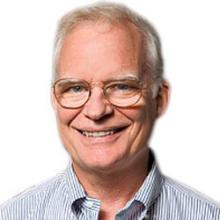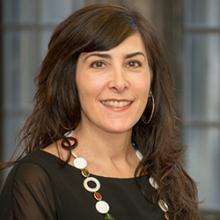Committee on Education receives grant to address educational inequality
20 PhD candidates will receive full tuition, stipends and other benefits to support efforts to promote educational equity at scale.
By Sarah Fister Gale
The Division of the Social Sciences’ Committee on Education (COE) is known for groundbreaking work in addressing inequality in public education. That work received important backing this year through a significant federal grant from the U.S. Department of Education that renew COE’s Predoctoral Training Program in the Education Sciences.
“This latest grant will help us train a new set of leaders, bringing rigorous social sciences to issues of educational improvement,” says Stephen Raudenbush, the Lewis-Sebring Distinguished Service Professor Department of Sociology, the College, the Harris School of Public Policy, and COE Chair.
COE has received funding from DoE since 2005. The grants have enabled the training of nearly 60 PHD students, many of whom are now working in faculty positions across the country.
“It's a major accomplishment,” says Lisa Rosen, Senior Lecturer and Associate Director of Committee, and co-author, The Ambitious Elementary School. The predoctoral fellowship program focusing on using research to “promote educational equity at scale and to leverage the strong partnership COE has with the Chicago Public School (CPS) system.”
Training for this group of Fellows will focus specifically on understanding and overcoming racial, ethnic and social inequality in education. “When you think about educational inequality and how to improve schooling, the children who need great schools the most are often the least likely to get them,” Raudenbush says.
Discrete school reform efforts by themselves have consistently failed to close achievement gaps. “There are good interventions, but in isolation they aren’t efficient to overcome inequality coming from multiple sources,” Raudenbush adds. “We need to combine multiple interventions so that we capitalize on the advances gained from each.”
Connected with CPS
The grant will bring 20 PhD students to UChicago over the next six years. Each pre-doctoral Fellow will earn a PhD in a social science discipline or from a professional school at the University while participating in a common program of courses, workshops, and a 2-year research-practice partnership.
As a core part of the work, the Fellows will be embedded in local public schools and projects to help bring research to bear on the enactment of an ambitious five-year plan for improvement devised by CPS. The goal of the plan is to provide a high-quality public education for every child, in every neighborhood, that prepares each for success in college, career, and civic life.
“This infusion of new support for Ph D training guarantees a lively intellectual environment focused on improving urban life and education in Chicago,” Raudenbush says. “It couldn’t happen without this grant.”
Tuition, stipends and more
Each Fellow will receive a five-year package of support that includes a full tuition waiver, a stipend of at least $34,000 annually, and other benefits. Additional funds will be available to support travel and research related to education research.
COE is currently accepting applications for the first round of Fellows to begin training in Fall 2021. To be eligible, students must be accepted to a full-time doctoral program at UChicago in the Division of the Social Sciences, the Harris School of Public Policy, or the School of Social Service Administration.
The review process for this Fellowship begins on December 1, 2020 and ends April 15, 2021. Decisions about students’ admission to the Pre-Doctoral Training Program will be made at the time of their admissions to their doctoral programs.
Raudenbush notes that this is a great opportunity for any PHD candidates interested in addressing inequality in education. “UChicago has a robust interdisciplinary environment where rigorous work is being done to address this problem,” Raudenbush says. “Improving education is an issue that is at the heart of our country’s future, and UChicago is a great place to do this work.”
For more information visit the COE website.


